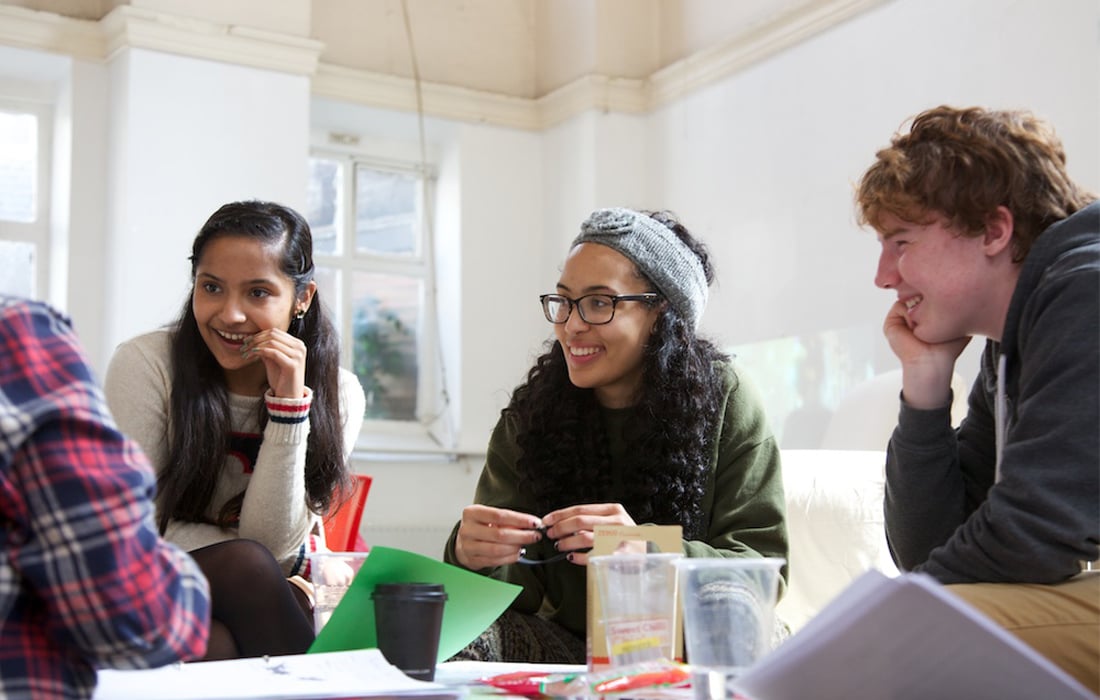
Why hitting diversity targets won’t make your organisation inclusive
Inclusion means ensuring workers can fulfil their potential, regardless of their background, identity or circumstance. Is now the time to re-think your organisation’s culture, asks Sara Whybrew.
The moral, social and legal case for diversity is inescapable and the coronavirus pandemic makes inclusion all the more important. Public recognition of the value of the cultural sector has grown as the crisis has progressed. As one tweet so beautifully summed it up: "If you think artists are useless, try to spend your quarantine without music, books, poems, movies, paintings and games."
But to be of value to everyone, the sector itself must aim to be truly representative. That has to start with workplace practices that give everyone equal access to employment and development opportunities based on merit and not because they are in a position to access training, experiences or networks that others can’t. Funders may have suspended their grant conditions and diversity targets may have been put on hold, but that doesn't diminish the need for inclusive thinking and planning for the new, unknown future ahead.
Privilege is not an indicator of ability
Many employers are willing to engage with diversity issues and take steps to further diversify their workforce, but merely doing this doesn't guarantee they are more inclusive. Among the many Acts of Parliament that protect workers’ rights, the 2010 Equality Act prohibits discrimination on the basis of age, disability, gender reassignment, marriage and civil partnership, pregnancy and maternity, race, religion or belief, sex (gender), and sexual orientation. These are the ‘protected characteristics’ and they are important to observe, but only observing these characteristics does not guarantee an organisation is open and fair.
Workplace diversity recognises and values difference: inclusion focuses on how an organisation ensures its workers can fulfil their potential, regardless of their background, identity or circumstance. It describes culture. An inclusive workforce will, for example, embrace cognitive diversity, celebrating and valuing different schools of thought. How is information shared in your company? Is it equally digestible to everyone? Are questions raised and ideas generated solely through the ‘put your hand up in a meeting’ style, or are there different ways to generate feedback? Do you even seek the views of your staff?
Relatively minor adjustments in an organisation’s practices could have a positive impact on its current staff, as well as those entering the business. An inclusive workforce sees the benefit of a diverse range of people working together: it makes all staff feel equally valued, so they’re able to contribute and progress.
Recruitment is key
A shift in thinking is needed for many organisations to step beyond their familiar and comfortable recruiting methods. While the rules on diversity need to be followed, to achieve a sector that is fair to everyone who wishes to be part of it, we must seek to be more than just diverse and strive for inclusivity.
As the means of getting new talent into an organisation, recruitment is obviously paramount to inclusivity. If you look at your own recruitment practices, can you be sure your approach is a truly inclusive one? Are your opportunities always advertised in the same places and are these the places where everyone in your organisation was recruited from? Are the questions in your application form or the pre-requisites outlined in your ‘person specification’ necessary? In other words, will these help you assess someone’s ability and potential to do the job? Is your approach to the interview going to get the best out of a candidate? Is knowledge of sector-specific or company-specific acronyms a true measure of whether someone has the skills you need? Failing to objectively assess how we recruit – and doing as we’ve always done – may just mean we’re missing out on valuable talent.
At Creative & Cultural Skills, we want to help the sector change. Our vision is to see a just and skilled cultural sector that is truly open to all. In all our work, from delivering programmes of fair access, to working to champion and support apprenticeships, we’re about steering the attitudes of employers to change and support them in that change. We don’t claim to be perfect ourselves, so together we all must learn to recognise and utilise someone’s skills, even if they are presented to us in ways that we’re not used to. Failure to do this is bad for business, unfair for employees and damaging to the health of our sector.
The cultural sector is characterised by its passion and enthusiasm, and it is fortunate to have a huge number of people who want to work in it.When the current crisis comes to an end, we need to ensure that the doors are open – and stay open – to the next generation of talent, and we must welcome and value difference in all its guises. Let’s not just imagine a sector that is truly inclusive, but make one that is.
Sara Whybrew is Director of Policy and Development at Creative & Cultural Skills.
![]() ccskills.org.uk
ccskills.org.uk
![]() @CCSkills
@CCSkills
This article, sponsored and contributed by Creative & Cultural Skills, is part of a series promoting apprenticeships and challenging entrenched social inequalities, to create a more diverse workforce.
Join the Discussion
You must be logged in to post a comment.